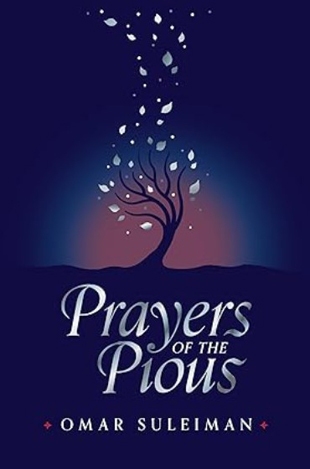Omar Suleiman is a Palestinian American from New Orleans, Louisiana, an imam1, scholar, social justice activist, public speaker, and author. He is an adjunct professor of Islamic studies and member of the Ethics Center Advisory Board at Southern Methodist University in University Park, Texas. He is also the founder and president of the Yaqeen Institute for Islamic Research.
While Oman Suleiman is well-known for his public speaking and activism, he is the author of numerous books providing religious instruction, such as Allah Loves…, Meeting Muhammad, Jannah: Home at Last, Judgement Day: Deeds that Light the Way, Angels in Your Presence, For Those Left Behind: Guidance on Death and Grieving, 40 on Justice: The Prophetic Voice on Social Reform, and The Virtues of Dhul Hijjah2, as well as papers on topics related to Islamic ethics, religion, and culture, including activism, gender equity, and the prophetic example.
In Prayers of the Pious, Suleiman offers 30 prayers from “pious predecessors, mostly from the Companions [of the Prophet Muhammad (peace be upon him)].” Each prayer appears in Arabic and is followed by a transliteration and an English interpretation. Suleiman offers context and explanation for each of the prayers, and often closes each section with his own summary prayer. The last section of the book is a prayer journal, with keywords to prompt your prayers and prayer notes. In this way, Suleiman offers a means of calling upon and connecting to our Creator in a manner that will engender yaqīn (spiritual certainty), insha’Allah (God willing).
try a spiritual practice on devotion
Go Deeper:
The Wisdom of Muhammad: In this e-course composed of carefully selected and representative sayings that refer to virtues, relationships, and spiritual insight, you will learn more about one of the great figures of humanity and gain practical wisdom for your own life.
—————
1 Imams lead the ritual prayers and perform the sermon for the Friday noon prayers that are obligatory for Muslim men (voluntary for Muslim women); they often provide religious guidance and leadership in their communities.
2 Dhul Hijjah is the twelfth month of the Islamic calendar during which Hajj (the Islamic pilgrimage) and the holiday Eid al-Adha (Feast of Sacrifice) take place.
